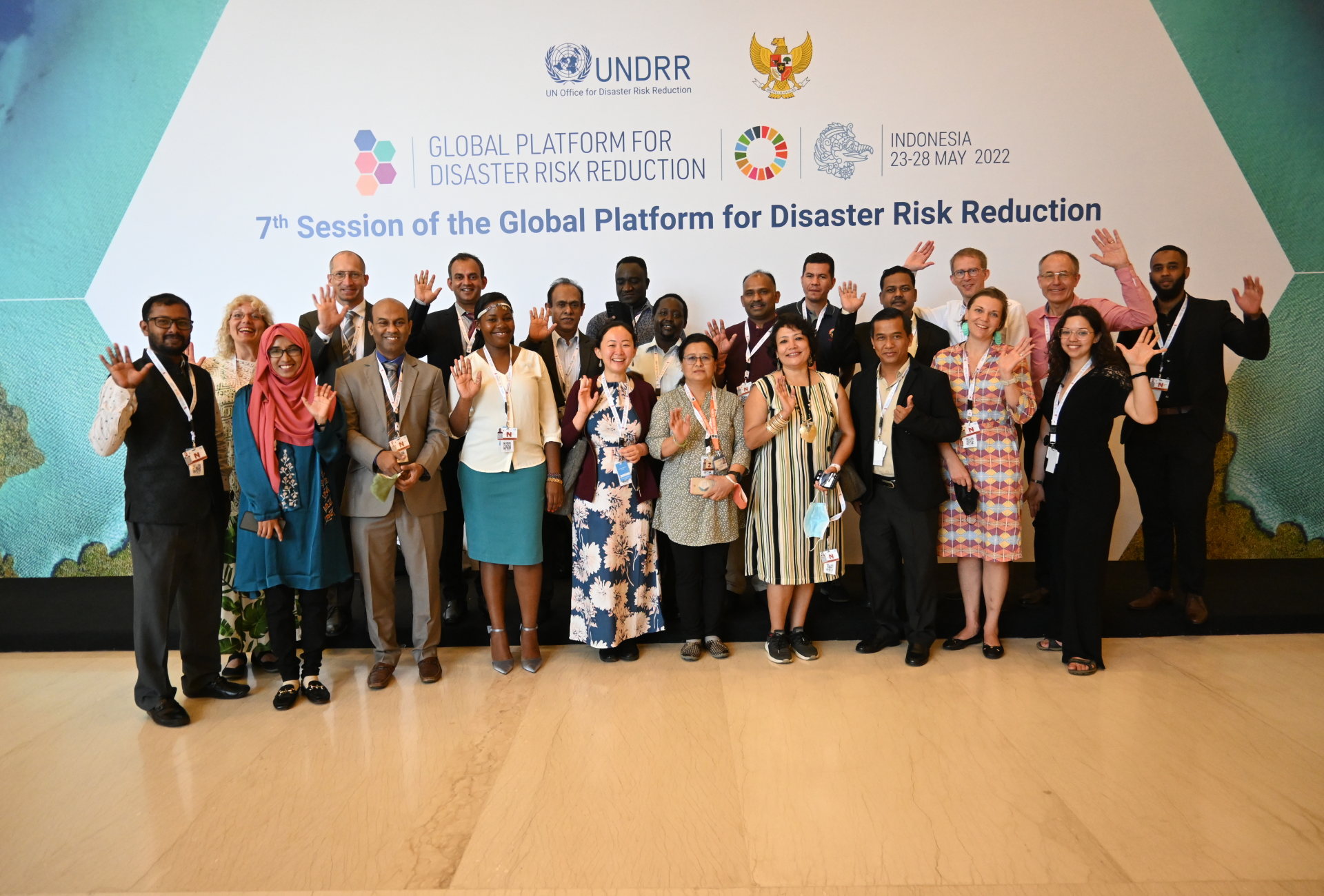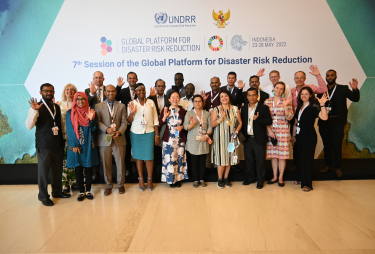Networking with Faith in Climate and Resilience


One of SMC’s thematic priorities is working with climate and resilience. We recently gathered our network to share experiences of international advocacy and of our special asset as faith-based actors in bringing hope and action to the table, both on a local and international level.
– As a big global network we have the power to bring change. We are not only struggling with the technical, political and social issues to combat climate change. We also need to address the ethical and spiritual aspects of our future. Our number one asset in working for a better world is our ability to put faith and hope in the future and each other, said rev. Petter Jacobsson, theological advisor at SMC.
Over 50 knowledgeable representatives from our member organisations and their partners from different parts around the world attended the seminar. Many of them were involved in two high-level climate conferences earlier this year:
- The Global Platform for Disaster Risk Reduction (DRR) in Indonesia in May where we signed GNDR:s Call to Action and the Faith Based Organisations’ Joint Statement.
- The UN Conference Stockholm +50 in June where we arranged a deep conversation on “Religious perspectives on the way forward for a healthy planet” and gave an Inter Faith Statement from UNEP-Faith for Earth Conversations.
Bringing a Faith Perspective to Climate Work
Faith gives many of us a special motivation to work for sustainable change for both humans and our planet. In the seminar, many shared how being faith-based or having religious literacy can improve relations with stakeholders and decision makers, especially in contexts where religious leaders are more trusted than political leaders. But we also identified a knowledge gap of how faith-based groups protect the environment, maybe because many religious actors don’t focus enough on these issues.
Risks and Advantages of Being Faith-Based
This was also one of the main risks identified in the seminar: faith being perceived in conflicting ways with other groups or values which in turn affects credibility, funding and even safety for some of us and those we work with. The risk of faith being politicized makes it a vulnerable factor for many minority faith-based actors (read more about this in our report Claiming Space for Faith).
Examples from the Christian Council of Sweden and ACT Alliance show how faith-based organisations and interfaith groups send a strong message of cooperation which can inspire others. Some participants described how networking with women organisations is great for transformation of harmful religious beliefs but also underlined the value of networking in non-faith contexts and the influence we can have just by bringing our own perspective.
Promoting Vertical and Horizontal Coherence on all Levels
Lennart Nolvall, SMC’s expert on resilience, described the different global agendas and networks within which SMC is working to promote sustainable development:
- The Sendai Framework for Disaster Risk Reduction
- The Paris Agreement
- The Sustainable Development Goals (SDGs)
– There is a risk that these and other global frameworks overwhelm national and local governments, said Lennart Nolvall. He emphasized the need for “vertical coherence” where global agendas build on local knowledge and experience. Equally important is “horizontal coherence” where different actors, functions and levels link up to handle risks and challenges in an integrated way, be it locally or globally.
Global, Regional and Local Networks
The seminar was one of SMC’s efforts to promote coherence within its own network. SMC is also engaged in other networks of partnership and cooperation for promoting resilience and combating climate change within civil society on different levels:
- GNDR: SMC is part of the largest international network of civil society organisations working to strengthen resilience and reduce risk in communities.
- Swedish Resilience Network: locally, in Sweden, SMC is a driving force behind this network focussing on advocacy and dialogue with different Swedish authorities to implement the Sendai-framework. It includes many of SMC’s member organisations.
- Kenya4Reslience: regionally, SMC supports this initiative from SMC member organisations and their partners in Kenya. Since 2018 it has expanded with over 100 civil society organisations and several hubs that work with advocacy on a national level in close connection with GNDR Kenya.
SMC also works through other networks like CONCORD, PaRD, UNEP Faith for Earth and Micah Global. Some voices at the seminar pointed out that we must increase our efforts to include youth in our networks. But also, that we must interact with our governments to bring about political decisions.
